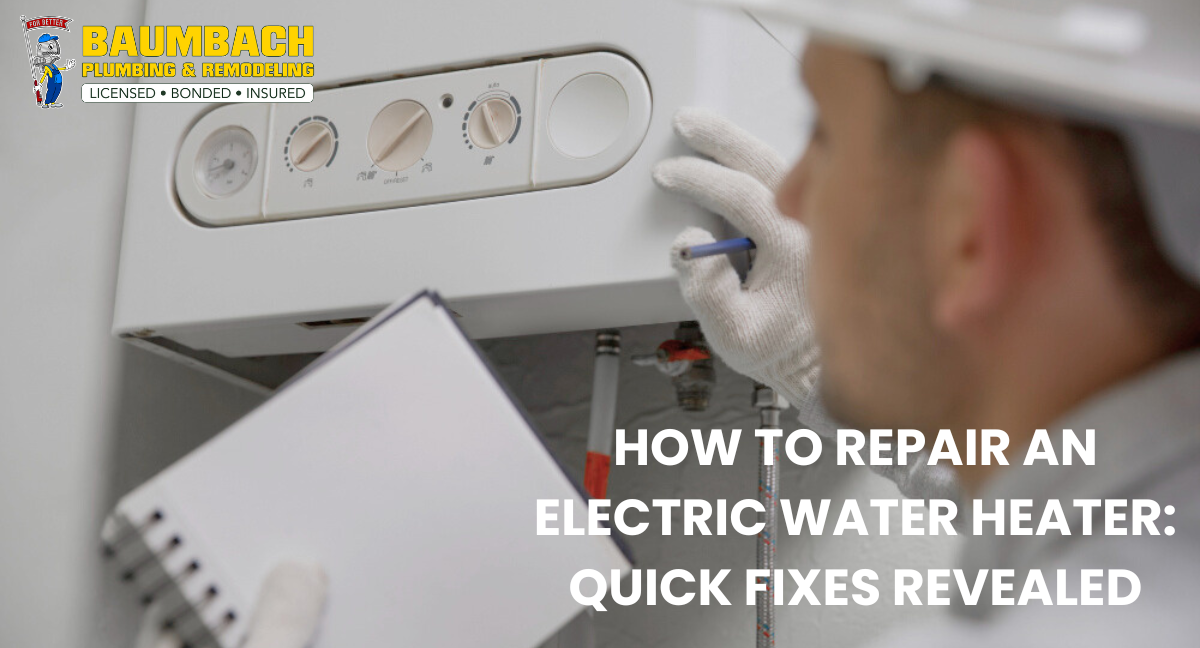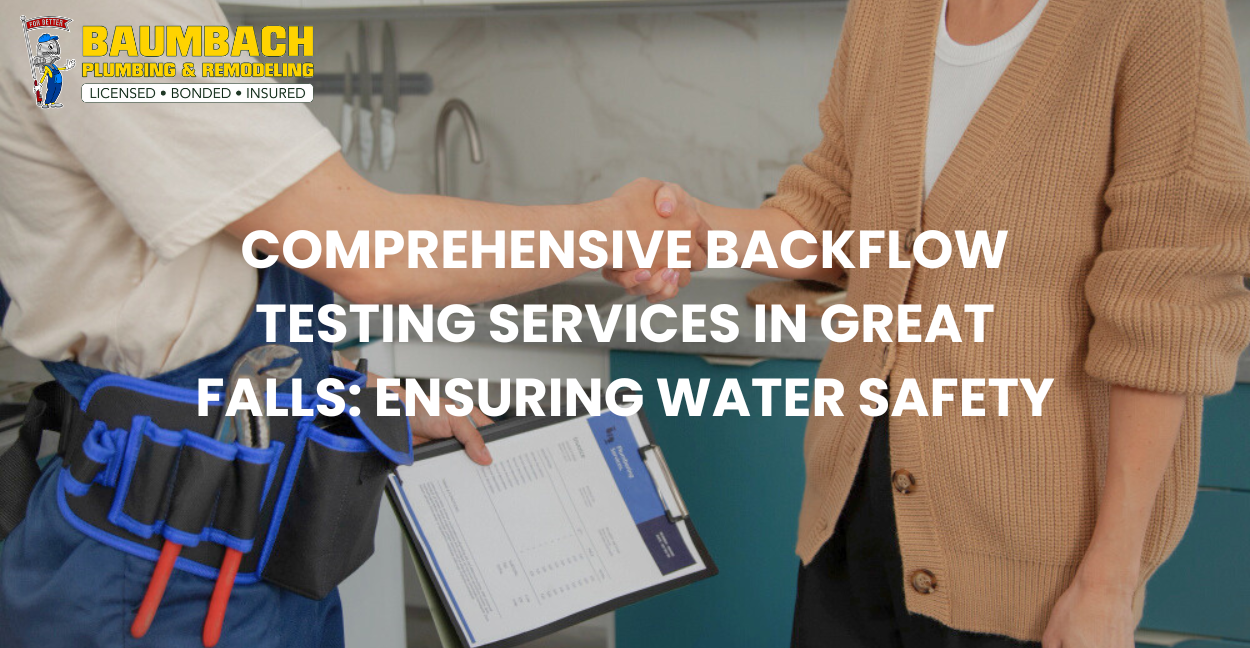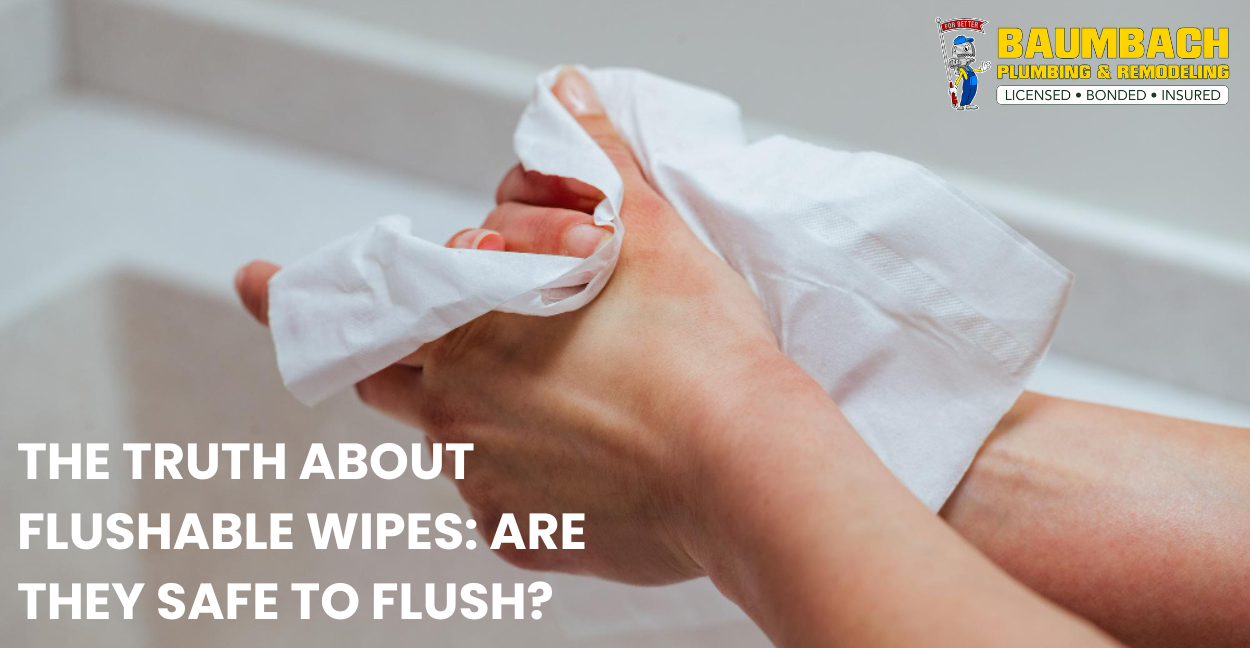A Comprehensive Guide: How to Repair an Electric Water Heater
Electric water heaters are a vital component of modern households, providing hot water for various purposes. However, like any other appliance, they can encounter issues over time. Learning how to repair an electric water heater can save you time and money while ensuring your comfort isn’t compromised. In this blog post, we’ll walk you through the steps to troubleshoot and fix common problems with electric water heaters.
Understanding Your Electric Water Heater
Before diving into repairs, it’s essential to understand the basic components of your electric water heater. Typically, an electric water heater consists of a tank, heating elements, a thermostat, a pressure relief valve, and electrical connections. Familiarizing yourself with these components will help you diagnose issues more effectively.
Common Issues & Solutions
1.) No Hot Water
Check the power supply: Ensure the circuit breaker hasn’t tripped and the heater is receiving power.
Test the heating elements: Using a multimeter, check for continuity to determine if the heating elements are functional. Replace any faulty elements.
Inspect the thermostat: Adjust the thermostat settings and ensure it’s functioning correctly. Replace if necessary.
2.) Inadequate Hot Water
Check the thermostat setting: Increase the temperature setting on the thermostat to meet your hot water demands.
3.) Flush the tank
Sediment buildup can reduce heating efficiency. Drain and flush the tank to remove sediment deposits.
4.) Leaking Tank
Inspect the pressure relief valve: If leaking persists after testing the valve, it may need replacement.
5.) Check for tank corrosion
Corrosion can weaken the tank structure, leading to leaks. Consider replacing the tank if corrosion is extensive.
6.) Strange Noises
Flush the tank: Sediment accumulation can cause popping or rumbling noises. Flushing the tank can alleviate this issue.
Inspect the heating elements: Loose or damaged heating elements can produce unusual sounds. Tighten or replace as needed.
Maintaining a fully functional electric water heater is essential for everyday comfort. By following the steps outlined in this guide, you can diagnose and repair common issues with your electric water heater. Remember to prioritize safety and seek professional assistance if needed. With proper care and maintenance, your electric water heater will continue to provide reliable hot water for years to come.
Essential Safety Precautions for Repairing Electric Water Heaters
Repairing an electric water heater can be a practical and cost-effective solution to common issues, but it’s essential to prioritize safety above all else. Electric water heaters involve electrical components and hot water, making it crucial to follow safety precautions to prevent accidents and injuries. Now we’ll outline the key safety measures to take when repairing electric water heaters, ensuring a secure and successful repair process.
Turn Off Power Supply:
Before starting any repair work on your electric water heater, the first step is to turn off the power supply. Locate the circuit breaker or fuse box connected to the water heater and switch off the power to the unit. This precaution prevents the risk of electric shock while working on the heater.
Allow the Water Heater to Cool:
Electric water heaters store hot water, which can cause burns if not handled carefully. Allow the water heater to cool down for a sufficient period before attempting any repairs. This step reduces the risk of scalding and ensures safer working conditions.
Use Proper Tools and Equipment:
Ensure you have the appropriate tools and equipment for the repair task at hand. Insulated gloves and goggles are essential for protection against electrical shocks and potential splashes of hot water. Additionally, use insulated screwdrivers and other tools designed for electrical work to minimize the risk of accidents.
Test for Electrical Power:
Before touching any electrical components, use a voltage tester to verify that there is no electrical power running to the water heater. This step is critical for avoiding accidental shocks. Test each wire and terminal to confirm that they are not energized before proceeding with the repair.
Inspect for Water Leaks:
Inspect the water heater for any signs of leaks or water damage. Even a small leak can indicate a potentially larger problem, such as a damaged tank or faulty pressure relief valve. Addressing leaks promptly can prevent water damage and mold growth in your home.
Follow Manufacturer’s Instructions:
Refer to the manufacturer’s instructions and guidelines for your specific electric water heater model. These instructions typically include safety precautions, maintenance procedures, and troubleshooting tips tailored to your appliance. Following the manufacturer’s recommendations ensures that you repair the water heater correctly and safely.
Avoid Overloading Circuits:
When working on the electrical components of the water heater, be mindful of overloading circuits. Ensure that other appliances or devices connected to the same circuit are turned off to prevent overloads and potential fires. Distribute electrical loads evenly to avoid strain on the wiring.
Seek Professional Assistance When Needed:
If you encounter complex electrical issues or feel uncertain about performing repairs, it’s best to seek professional assistance. Licensed electricians or qualified technicians have the expertise and experience to safely diagnose and repair electric water heaters, minimizing risks and ensuring proper functioning.
If you are looking for a professional expert to repair an electric heater in Northern Virginia. Look no where, Contact Baumbach Plumbing & Remodeling, LLC. At Baumbach Plumbing, we understand the urgency of such situations and are ready to assist you with our expert services.
Safety should always be the top priority when repairing electric water heaters. By following these essential safety precautions, you can minimize the risk of accidents, injuries, and damage while ensuring effective repairs. Remember to take your time, use the proper tools and equipment, and seek professional help when necessary for a safe and successful repair process.
Want to use your electric water heater for a longer period of time? Checkout the 10 Practical Tips for Extending the Lifespan of Your Electric Water Heater.
10 Practical Tips for Extending the Lifespan of Your Electric Water Heater
To ensure its longevity and optimal performance, it’s essential to implement proper maintenance practices and preventive measures.
1.) Regular Maintenance Checks
Schedule routine maintenance checks for your electric water heater to identify and address any potential issues early on. Inspect the tank, heating elements, thermostat, and pressure relief valve for signs of wear, leaks, or sediment buildup.
Want to inspect your electric water heater to know if everything is perfect or need repair? Schedule an appointment with us and let our professional experts provide you with a detailed inspection report of your electric water heater.
2.) Flushing the Tank
Periodically flush the tank to remove sediment and mineral deposits that accumulate over time. Sediment buildup can reduce the efficiency of your water heater and contribute to corrosion, leading to premature failure. Flushing the tank helps maintain optimal heating efficiency and prolongs the lifespan of the appliance.
3.) Adjust Temperature Settings
Optimize the temperature settings on your electric water heater to prevent excessive wear and energy wastage. Set the thermostat to a moderate temperature (usually around 120 degrees Fahrenheit) to prevent overheating and minimize the risk of scalding while still ensuring comfortable hot water.
4.) Insulate Hot Water Pipes
Insulating hot water pipes helps reduce heat loss and maintain water temperature as it travels from the heater to the faucets. This simple yet effective measure can improve energy efficiency, reduce standby heat loss, and alleviate strain on your water heater, ultimately extending its lifespan.
5.) Install a Pressure Regulator
High water pressure can strain your electric water heater and other plumbing fixtures, leading to leaks, damage, and premature failure. Install a pressure regulator or pressure-reducing valve to maintain optimal water pressure levels and protect your water heater from excessive stress.
6.) Use a Water Softener
Hard water contains high levels of minerals like calcium and magnesium, which can accelerate corrosion and scale buildup within your water heater. Install a water softener to reduce the hardness of your water supply, preventing scale formation and prolonging the lifespan of your electric water heater.
7.) Check Anode Rod Regularly
The sacrificial anode rod plays a crucial role in protecting your electric water heater tank from corrosion. Periodically inspect the anode rod for signs of corrosion or depletion and replace it if necessary. A well-maintained anode rod can significantly extend the lifespan of your water heater.
8.) Address Leaks Promptly
Even minor leaks in your electric water heater can escalate into major problems if left unattended. Inspect your water heater regularly for leaks and address them promptly to prevent water damage, mold growth, and structural issues. Repair or replace faulty components as needed to maintain the integrity of the system.
9.) Avoid Overloading the Heater
Avoid overloading your electric water heater by limiting the usage of hot water during peak times or staggering the usage among household members. Overworking the heater can strain its components and reduce its efficiency, leading to increased wear and potential breakdowns.
10.) Professional Inspection and Maintenance
Consider scheduling periodic professional inspections and maintenance services for your electric water heater. A qualified technician can perform thorough checks, tune-ups, and repairs to ensure optimal performance, efficiency, and safety, thereby extending the lifespan of your appliance.
Frequently Asked Questions
1.) Can I repair my electric water heater myself?
It’s possible to repair some issues with an electric water heater yourself, but it’s crucial to proceed with caution. Simple problems like replacing a heating element or thermostat can often be done by homeowners with some DIY experience and the right tools. However, more complex issues such as electrical problems or leaks may require professional intervention to ensure safety and proper repairs. Before attempting any repairs yourself, it’s essential to consult the manufacturer’s instructions and safety guidelines. Additionally, if you’re unsure or uncomfortable with the repair process, it’s always best to hire a licensed plumber or electrician to avoid any accidents or further damage to your water heater.
2.) How often should I flush my electric water heater?
Flushing your electric water heater regularly is essential for maintaining its efficiency and prolonging its lifespan. Generally, it’s recommended to flush your water heater at least once a year. However, if you live in an area with hard water or if you notice sediment buildup, more frequent flushing may be necessary. Sediment buildup can reduce the heater’s efficiency and even lead to premature failure if left unchecked. Flushing your water heater involves draining the tank to remove sediment and mineral deposits that settle at the bottom over time. This process helps ensure optimal performance and prevents potential issues like reduced heating capacity and corrosion.
3.) Why is my water heater making strange noises?
Strange noises coming from your water heater can indicate various issues that require attention. One common cause of noise is sediment buildup at the bottom of the tank, which can create popping or rumbling sounds as the water heats up and bubbles through the sediment. This buildup reduces the efficiency of the heater and can lead to overheating or even tank failure if not addressed. Another possible cause of noise is mineral deposits forming on the heating elements, causing them to crackle or sizzle when they heat up. Additionally, issues with the heating elements or excessive pressure in the tank can also result in unusual sounds. It’s essential to investigate the source of the noise promptly and address any underlying issues to prevent further damage to your water heater.
4.) What should I do if I detect a water leak around my water heater?
If you detect a water leak around your water heater, it’s crucial to take immediate action to prevent water damage and potential safety hazards. Start by turning off the power or gas supply to the water heater to reduce the risk of electrical shock or fire. Next, shut off the water supply to the heater to stop the flow of water and prevent further leakage. Once you’ve isolated the leak, assess the extent of the damage and determine whether you can repair it yourself or if you need to call a professional plumber. In some cases, leaks may be caused by loose fittings, corroded pipes, or a faulty pressure relief valve, which can often be repaired relatively easily. However, if the tank itself is leaking, it may need to be replaced to prevent more significant damage.
5.) What is the most common problem with electric water heaters?
One of the most common problems with electric water heaters is sediment buildup at the bottom of the tank. Over time, minerals and debris in the water can settle at the bottom of the tank, forming a layer of sediment that can reduce the heater’s efficiency and performance. This buildup insulates the heating elements from the water, making it harder for them to heat the water effectively and leading to increased energy consumption. Additionally, sediment buildup can cause overheating and pressure buildup in the tank, which can result in leaks or even tank failure if left unchecked. Regular flushing of the water heater can help prevent sediment buildup and prolong its lifespan, ensuring efficient operation and reliable performance.






